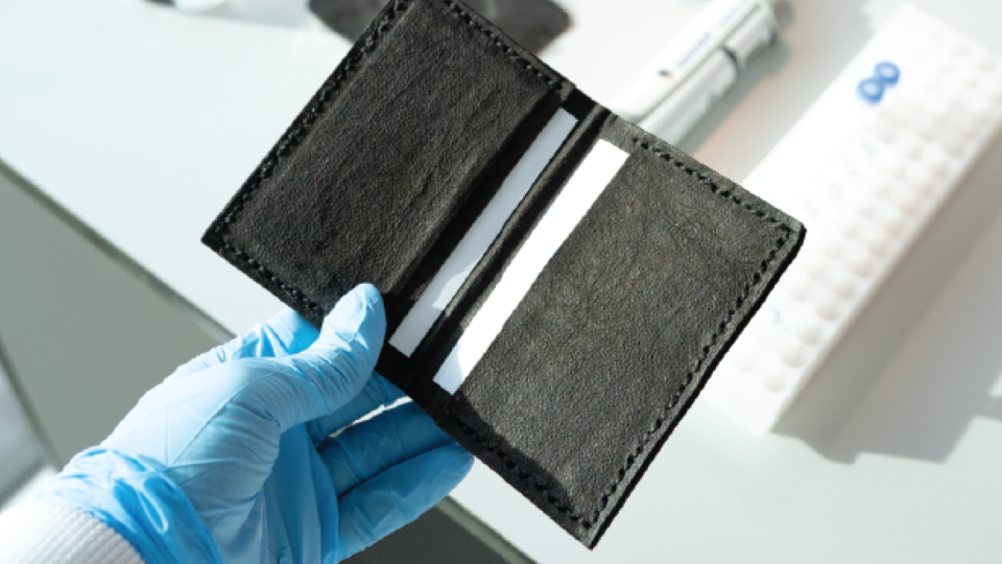Vegan leather grown from bacteria marks boost for sustainable fashion
In an advance for sustainable fashion, bacteria have been genetically engineered at Imperial College London to grow animal-and plastic-free leather that dyes itself.

Microbes are already grown to make sustainable textiles or dyes for industry, but the breakthrough at Imperial marks the first time bacteria have been engineered to produce a material and its own pigment simultaneously.
The researchers said their self-dyeing vegan, plastic-free leather is a step forward for more sustainable fashion. Their findings are detailed in Nature Biotechnology.
The new process could also theoretically be adapted to have bacteria grow materials with various vibrant colours and patterns, and to make more sustainable alternatives to other textiles such as cotton and cashmere.
In a statement, lead author Professor Tom Ellis, from Imperial College London’s Department of Bioengineering, said: “Inventing a new, faster way to produce sustainable, self-dyed leather alternatives is a major achievement for synthetic biology and sustainable fashion.
“Bacterial cellulose is inherently vegan, and its growth requires a tiny fraction of the carbon emissions, water, land use and time of farming cows for leather.
Register now to continue reading
Thanks for visiting The Engineer. You’ve now reached your monthly limit of news stories. Register for free to unlock unlimited access to all of our news coverage, as well as premium content including opinion, in-depth features and special reports.
Benefits of registering
-
In-depth insights and coverage of key emerging trends
-
Unrestricted access to special reports throughout the year
-
Daily technology news delivered straight to your inbox










WildFusion helps robot traverse difficult terrain
Son of Daleks? can they climb stairs?